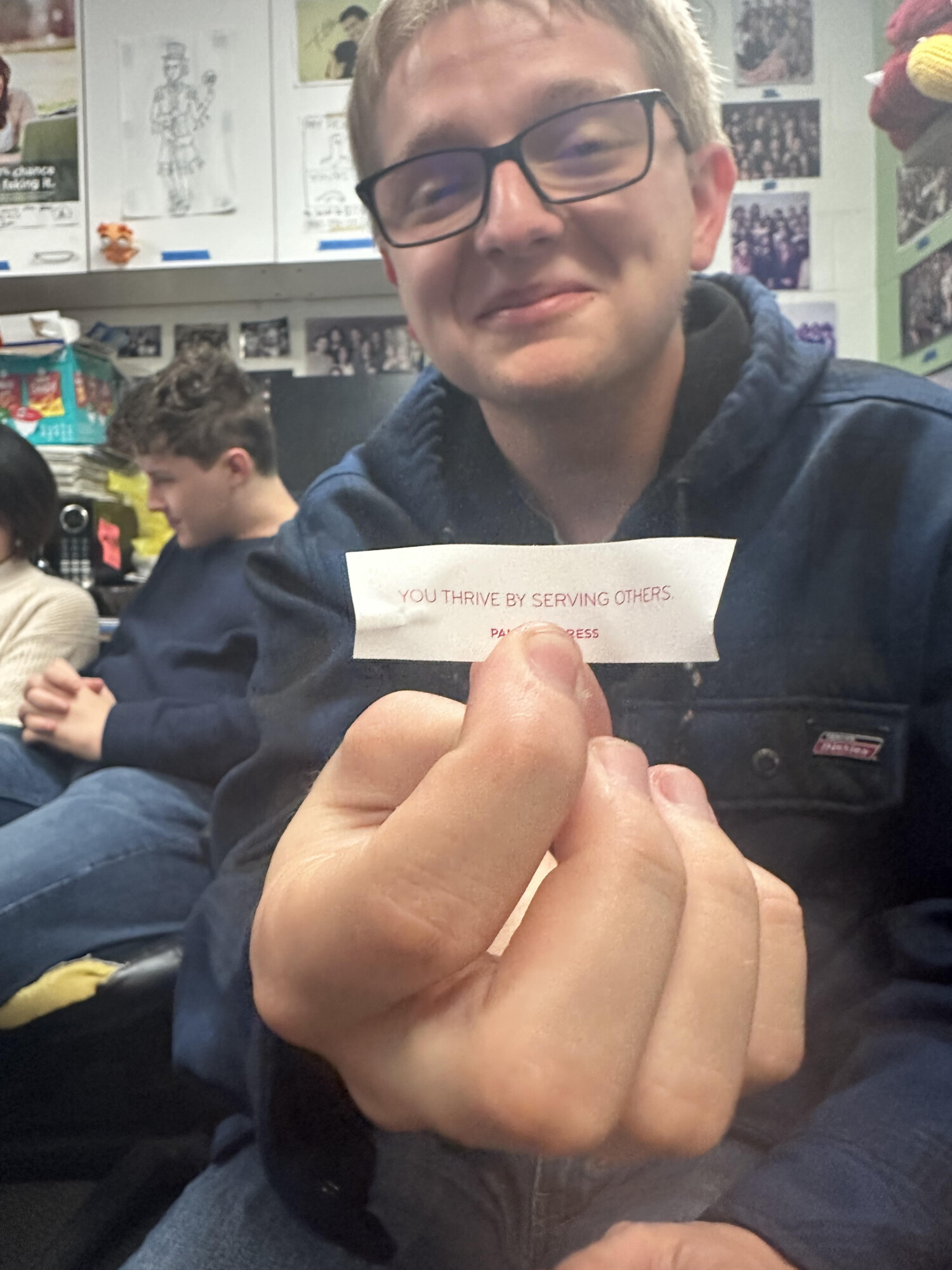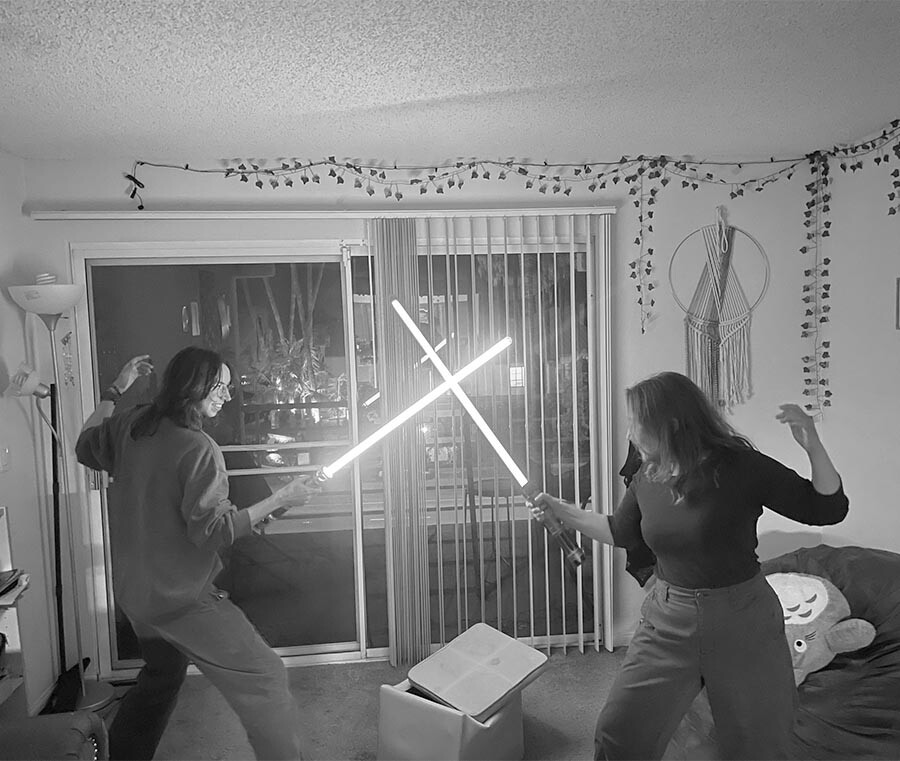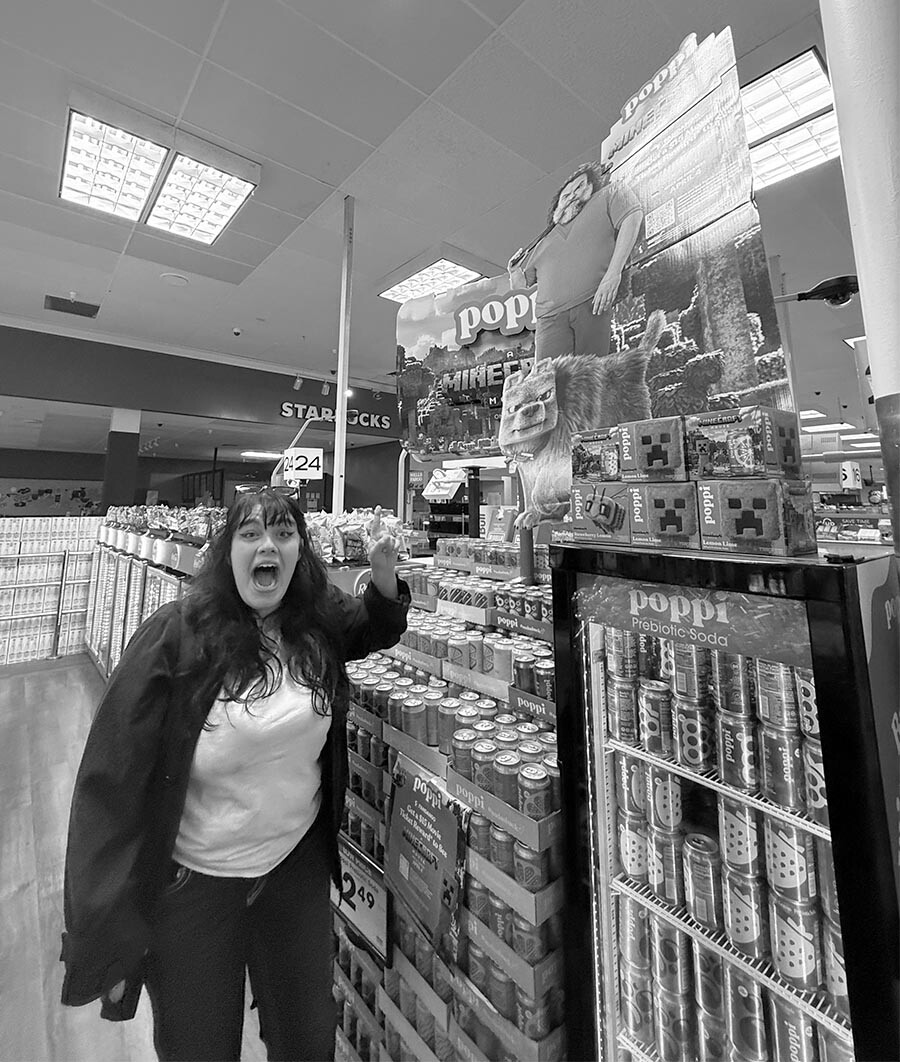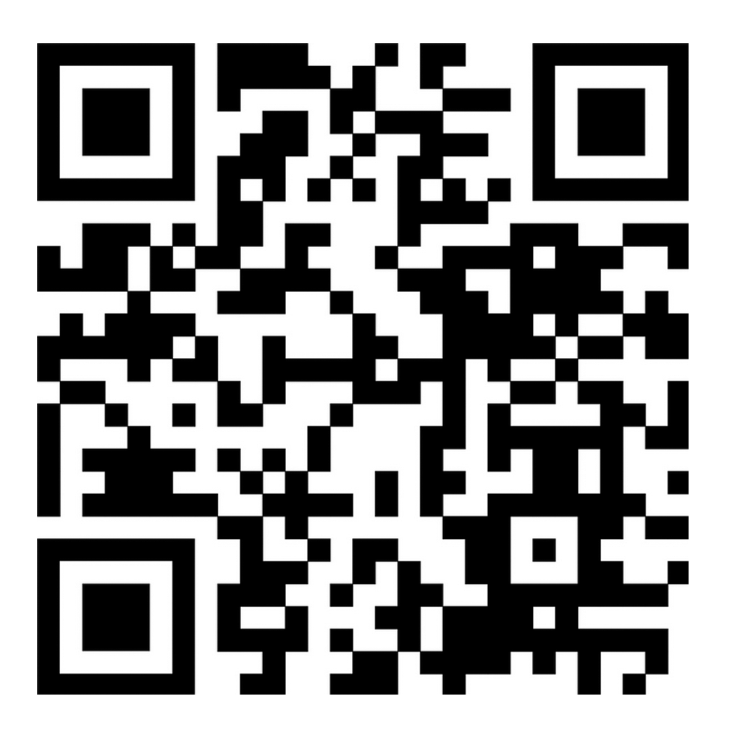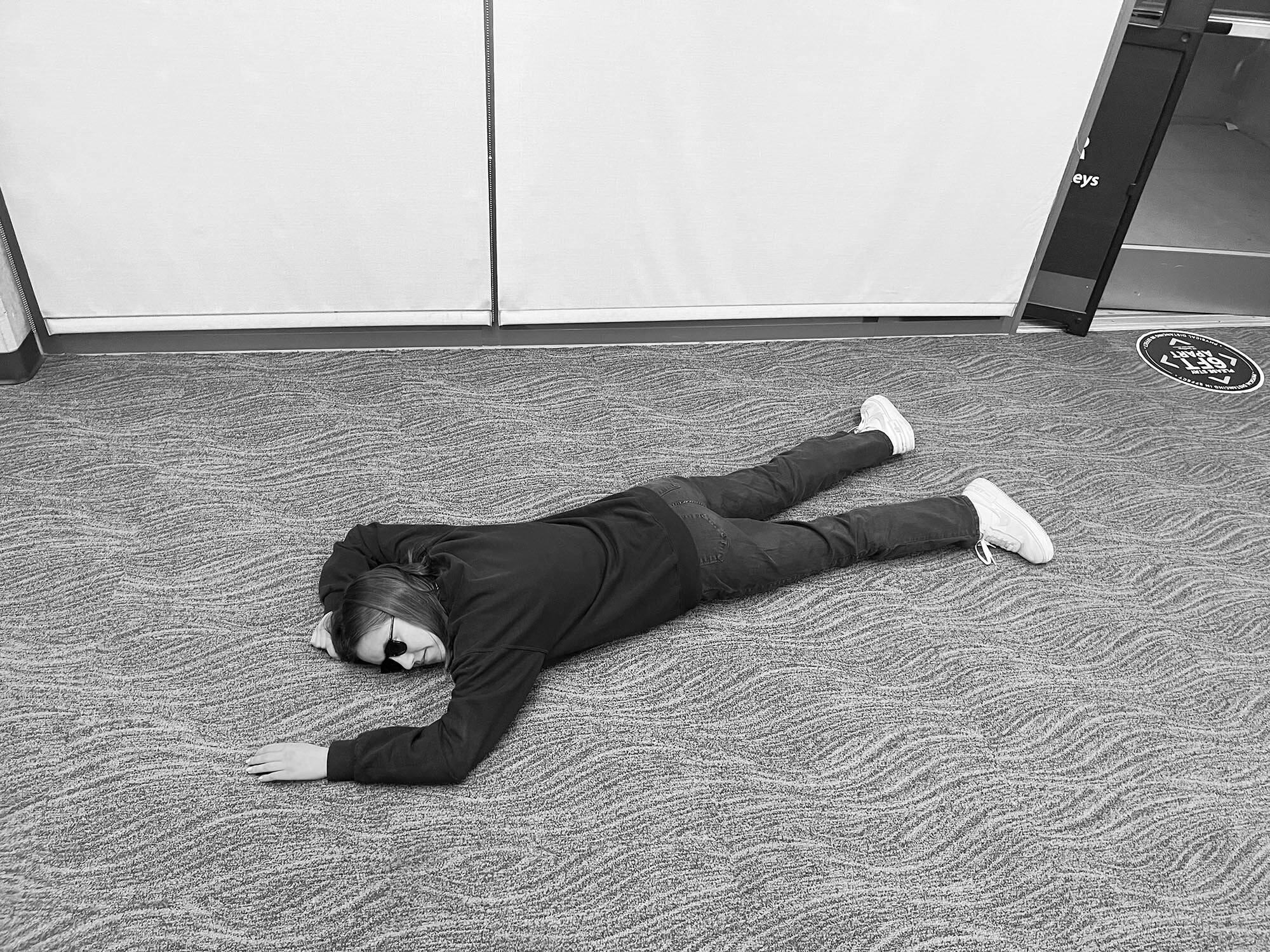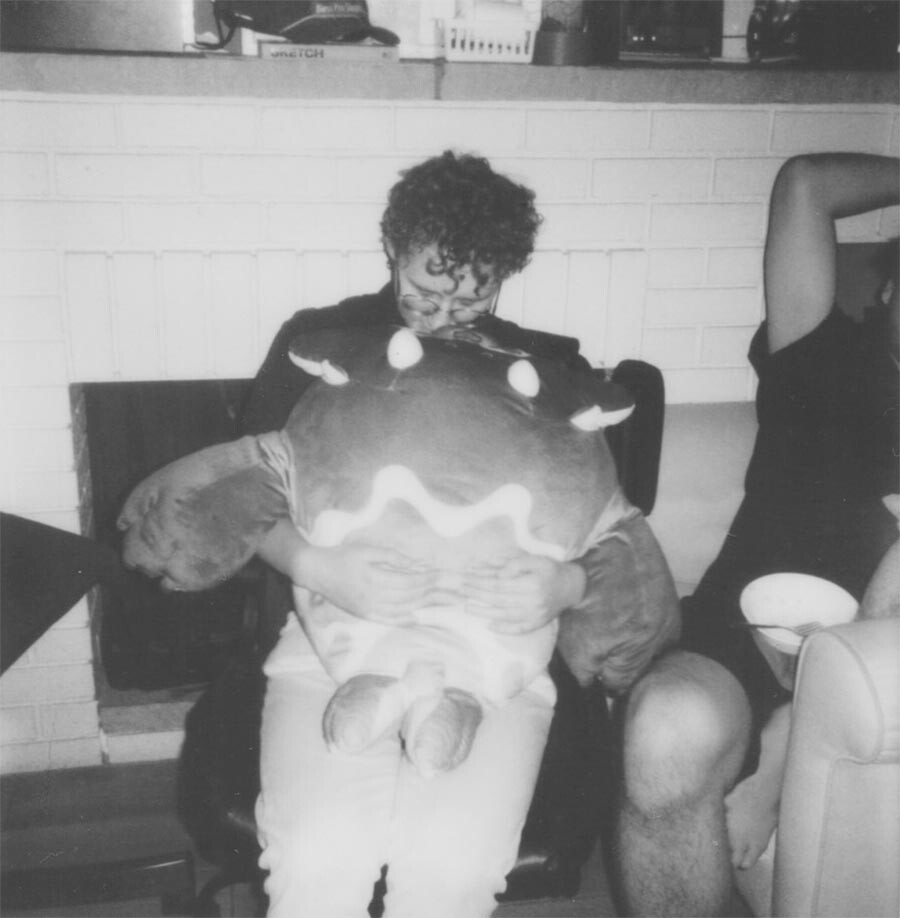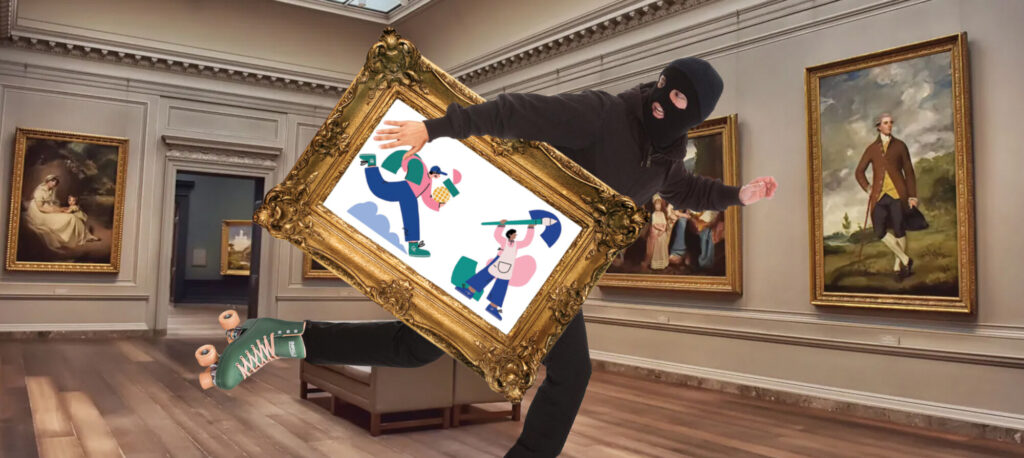
“A picture is worth a thousand words, but this one wasn’t worth my time,” said Buadgui.
Photo by Dylan Schmidt
A new video surfaced on TikTok last week of Transport One Xylose Incorporation Corporation (TOXIC) employees tossing a 5′ by 6′ painting created by pre-eminent contemporary artist Ensaide Jocce at a cloaked figure on roller skates. The subsequent investigation of the footage has culminated in the release of internal documents explaining the unusual situation.
The painting had originally been purchased in April of 2021 by an anonymous TOXIC intern in the Discretionary Sales Department who had been directed in an email to “squirrel away” $1.5 million “like a bitty baby squirrel,” so that “they don’t lower our yearly budget again, that damn budgeting department.” After its purchase, the painting was then gifted to the Derelict Sales Department, regifted to the Disconsolate Sales Department, regifted again to the Drosophiliac Sales Department, and finally hung in the TOXIC corporate lobby in downtown San Diego.
Within six days, the painting was reported as missing. Security camera footage showed an individual, later identified as San Diego resident Notsoe Buadgui, entering the lobby, taking the painting off the wall, and leaving. Employees working at the time claim the theft had “seemed like normal company operations,” and was protocol with the “general bad vibes” apparently common to the lobby.
After another week, the painting was discovered outside the office where it had been originally displayed. “It was covered in a cute homemade quilt,” said employee Kagina Masheen, who found the painting. “It was clean too, and smelled nice, very positive energy. I couldn’t sell out a nice laundering guy to the police.” She instead notified higher level management about the return of the painting.
The situation caught the attention of accountant Butte Leicher. “I ran the numbers, and under Clause 123420 of the Hurdur Statute, we can claim the theoretical evaluation of an asset as a legitimate expense — as long as we don’t have ‘direct access’ to it,” said Leicher. “Basically, the painting’s worth more if we can’t see it, like visually.” Masheen claims she was directed to “just get rid of it” to “get that nerd from that damn budgeting department off our backs.” Masheen attempted to contact Buadgui via email, cell phone, and nautical flag signal, but received no response. “I didn’t want it back,” explained Buadgui. “I think the lobby imprinted it with malice. I don’t need that in my house.”
Unaware of his wish, TOXIC employees attempted to return the painting on numerous occasions. “The first time, we went to his house. The lights were out, but we could see him peeking through the blinds, so we left the painting on his doorstep,” said Masheen. “But he caught up to us and threw it in the back of the truck when we weren’t looking. It sort of went downhill from there.”
“Yeah, they kept coming with the car, so I had to get roller skates,” claimed Buadgui, “but then they started trying these little tricks. One time they all wore fake mustaches and tried to tell me I won a free raft, but I only fell for that one once.” In total, the painting changed hands at least 219 times by the time the roller-skating exchange was documented by bystanders and posted to TikTok. “Every time the painting ‘went missing’ it technically grew more valuable,” explained Leicher, “so even though we were throwing away thousands of dollars on those fake mustaches, on the net, we were still making money.” TOXIC has chosen not to press charges against Buadgui, who commented, “I formed some lifelong friendships from this whole saga. We’ve even started getting coffee together, painting free, of course.”





